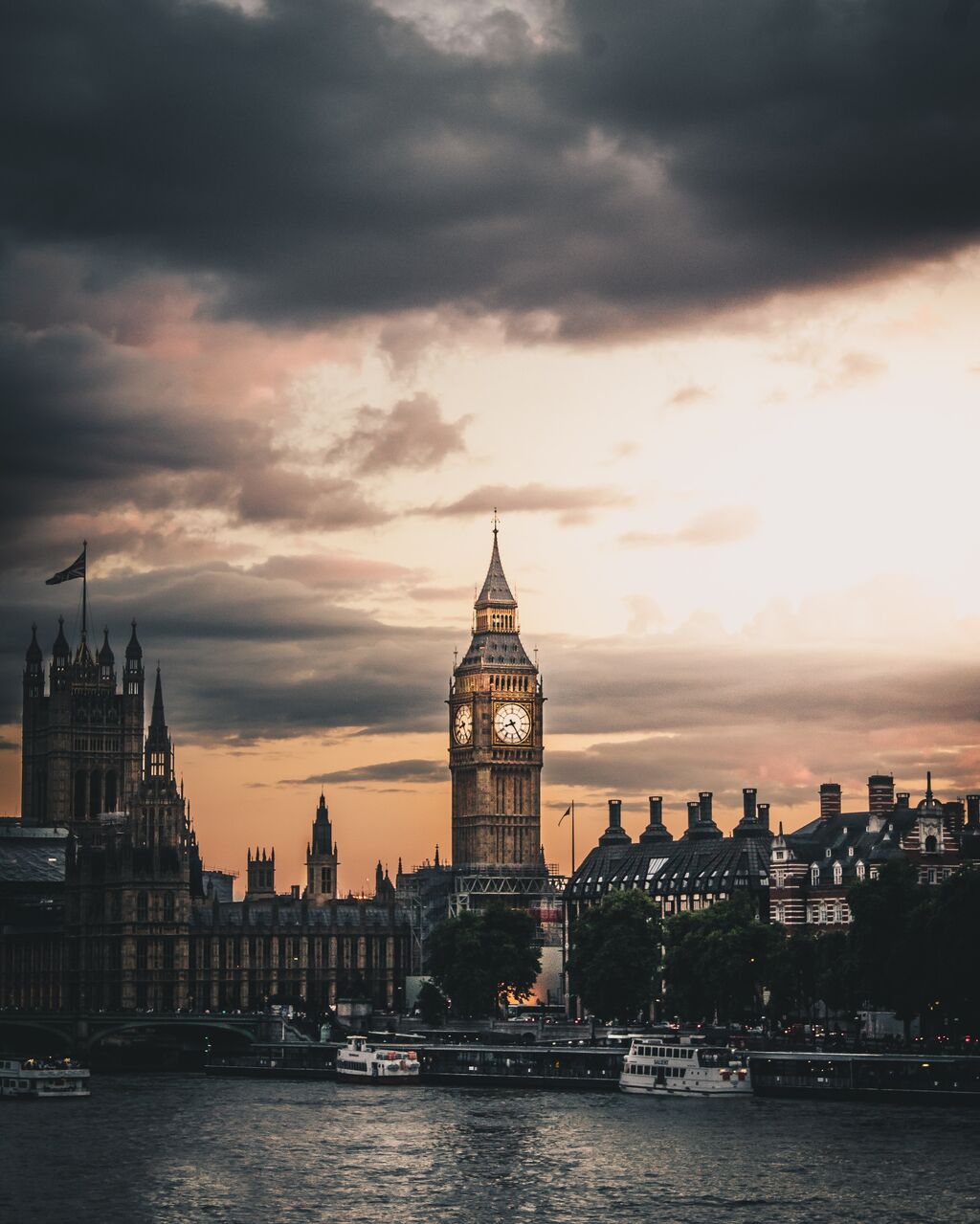The death of democracy?

Are we watching the death of democracy?
I suspect that this question seems somewhat unremarkable to your ears. After all, we’ve grown accustomed to our political classes and Twitter timelines bandying around terms like ‘fascist’ and ‘Nazi’ with wanton abandon. But in all seriousness, when you consider some of the underlying metrics of democratic health, how does our nation fare?
Take, for example, a report carried out by Carnegie UK which notes that “Less than half of the English public (45%) feel that democracy works well in the UK and the overwhelming majority do not trust that MPs (76%) or the UK government (73%) will make decisions that will improve their lives.”
The ONS reports similarly concerning trends: 49% do not trust the government (only 35% do) and 46% do not trust Parliament (only 34% do). Local government fares a little better with 42% saying they trust in the institution, though a rather large 39% do not. When it comes to political parties, things get really bad, with a whopping 60% saying they do not trust them.
Ipsos Mori report the lowest levels of trust in politicians for 40 years with only a mere 9% believing that politicians can be trusted to tell the truth. For context, that is lower than after the 2009 expenses crisis. Work done by YouGov last year recorded similar results, with seven in ten Brits having negative views of politics, and only 7% holding a positive view. The Electoral Commission notes that only 33% feel satisfied with democracy and 39% feel dissatisfied.
When one looks at younger voters, there are perhaps even greater reasons to question the health of democracy. Only a few years ago the Telegraph commented on the findings of an Onward report: “66 per cent of 25 to 34-year-olds favour ‘strongman’ leaders while 26 per cent believe democracy is a bad way to run the country - and 36 per cent would support army rule.”
Perhaps the statistic that has shocked me most in recent weeks though is attitudes towards the abuse of politicians. A mere 16% of 18-24 years olds (and only 23% amongst those aged 25-34) think it is totally unacceptable to use foul language to address a politician. And only 31% of 16-24 year olds think it is totally unacceptable to verbally threaten MPs in public.
It's not just the public, MPs are unhappy too!
At the time of writing, the Institute for Government notes that 86 MPs have announced they are standing down at the next election. That is roughly 13% of the entire House of Commons (and higher than the total in 2019 already!).
The reasons which each of the 86 MPs have given for stepping down vary. Some are facing boundary changes to their constituency, others face health conditions, others face scandal, others simply want to retire or change jobs. However, a worrying number report abuse, intimidation, and violence against them as part of their reasoning.
SNP MP Mhairi Black announced back in July 2023 that she would not be seeking re-election for a variety of reasons, including this rather revealing comment: "Between media attention, social media abuse, threats, constant travel, and the murders of two MPs, my loved ones have been in a constant state of anxiety for my health and safety."
The Conservative MP Stuart Anderson said “threats against his family had influenced his decision not to seek re-election in Wolverhampton South West”. The Express and Star report that his office had been attacked ten times, including a gang in ski masks gathering outside the office and intimidating staff, that one man has been found guilty of threatening to blow up his office, and that he and has family have faced death threats.
Indeed this week, Government Minister Mike Freer MP, the MP for Finchley and Golders Green, announced that he was intending to step down due to a series of death threats against him, and an arson attack on his constituency office. Mr Freer had been the MP since 2010 and was regarded as likely to keep his seat, but he was quoted as saying "There comes a point when the threats to your personal safety become too much."
These three MPs are not alone in their fears nor in the harassment and intimidation they have faced. In recent years, both Jo Cox MP and Sir David Amess MP were stabbed to death as they went about their political duties. Sir Stephen Timms MP is another who, although he survived, has been violently attacked and stabbed whilst serving on the political frontline.
Declining trust in the democratic process, a willingness to use verbal abuse, and numerous MPs being subjected to death threats, violent attack, and attempted murder. This is the state of British democracy in 2024.
How did we get here?
There will be those who lay the blame at the door of our politicians, political institutions, and the government.
Not without good reason, proponents of this view can point to a litany of expenses scandals, sexual abuse and misconduct cases, lockdown partying, Brexit shenanigans, and examples in which politicians played fast and loose with the truth to make their case.
Although the majority of MPs and politicians are well-meaning and conscientious people seeking to do their best for their constituents, it only takes a few high-profile instances of misconduct, deceit, and depravity to alter public perception more generally.
It is not without reason that the Biblical standards for leadership are so high. The standards and code by which our leaders operate matter, and one need only briefly flick through the history of Israel to see the damage that bad leaders can have on a nation.
But the political landscape has also changed dramatically in the last few decades. Social media is widely cited as particularly cancerous when it comes to political health. Misinformation, abuse by nameless (and named) accounts, and algorithms and designs that promote outrage and controversy rather than considered and well-informed debate, are all particularly toxic.
Others point to the failure of democracy and democratically elected politicians to deliver what people really want as a reason for declining trust and rising tensions. If your perception is that politicians are powerless (or unwilling) to address your concerns, your faith will be tested, whether your concerns be poverty, crime, sickness, war, immigration, education, tax, or whatever else.
These reasons all have some truth to them, and they underpin many of the solutions people propose to fix our democracy. We need more regulation, of politicians behaviour, of platforms like social media, and of public access to politicians. We need better politicians, reform of the work culture, of how candidates are selected, of how political parties work, and of how citizens vote.
Figures like Jonathan Haidt have made some suggestions as to how social media could be reformed. Governments have committed to public standards such as ‘the Seven Principles of Public Life’. And authors like Isabel Hardman have sought to assess the political journey with a view to offering improvements. Campaigns like the Jo Cox Foundation make important and helpful contributions to improving the standards of public debate.
Yet I can’t help but thinking that good ideas though they be, they just don’t go far enough.
I say this because democracy requires a moral vision, and not simply structures and institutions. For all that democracy is a structure and a system, it is also a belief and a worldview. Without the foundational beliefs that underpin democracy, the system itself will fall apart.
Academic David Koyzis, in his book Political Visions and Illusions, talks about democracy as a structure, which in the West, tends to have these six features: universal franchise that is possessed by all, decisions being made according to majority rule, the right to stand for public office, freedom of speech and the press, and protections of civil liberties and minority rights.
But it is very possible to have these features in place, as we do here in the UK, and for democracy to still feel under threat and unhealthy.
Without a shared understanding of what democracy is, and how it is to be used, it simply becomes a system like any other that can be played for selfish interest or private gain. Democracy at its heart requires a commitment to building towards a common life together.
Luke Bretherton puts it like this,
“When I meet someone with whom I disagree, whom I dislike, or whom I find threatening, I can do one of four things. I can kill them, I can create a structure of coercion so I can control them, or I can make life so difficult that they run away. Or I can do politics. That is to say, I can form, norm, and sustain some kind of common life amid asymmetries of power, competing visions of the good, and my own feelings of aversion or fear without killing, coercing, or causing them to flee.”
This is what merely introducing further rules, regulations, or codes of conduct fails to recognise – the need to be underpinned by a moral vision that gives common meaning to said rules and regulations, and a common spirit and will to do them. An agreement that democratic politics of debate and dialogue is better than violence, coercion, or intimidation.
Biblically speaking, this should be no surprise to us. Israel was given the gift of the law from God Himself. But the law, though good, was powerless to bring about the inner transformation required to pursue the good life without the Spirit.
For democracy to work, democratic leaders and among democratic citizens need to make a conscious choice to uphold and live out the values that underpin it. We need to choose to listen to others, to discuss ideas, to persuade not threaten, to honour those in public life, and for those in public life to honour the citizens they serve.
This is not a call for a mushy middle ground of weak compromise in which values and principles go out of the window, in exchange for some fanciful notion in which we can all get what we want if only we choose to “be kind”.
This is tough, hard work. It means listening to, and honouring those with whom we profoundly disagree.
It means seeking to serve the common good of all, not just your individual or group interests.
It means being willing to be held accountable, to be corrected, to admit you’re wrong.
It means acting with integrity, whether you are a politician or a citizen.
In our fractured society, where public life seems to increasingly resemble a trial, in which embattled interest groups and groupings seek to litigate their opponents for all they’re worth, I am somewhat doubtful that the moral direction underpinning our democratic foundations can be maintained and strengthened.
Yet is that not a great opportunity for those of us who follow Jesus to lead by example, to embody the Kingdom of Heaven, to live out the sermon on the mount, all in pursuit of the good of the city in which God has placed us?
Would it not be a great testimony to Christ’s Church if we were renowned for being a people that sought to rebuild public trust, strengthen our institutions, honour elected officials, seek the good of all, and listen, debate, and disagree with others well no matter who they are?
If our attempts to save democracy only ever focus on the rules, the systems, and the codes, then we are destined to watch democracy collapse around us. The spirit that makes it work will have long since departed.
Laws can only ever go so far. It is the human heart that needs to change. Let us pray that the Spirit of God might move in our nation and lead us back to knowledge of what it means to be good citizens.
May we learn to recognise that everyone is made in the image of God and imbued with inherent dignity and value. May we understand the importance not of pursuing our own desires, but of helping our neighbour to flourish. And may we learn once again that the best use of power is to lay it aside in service and in sacrifice, as the true King himself once did.






